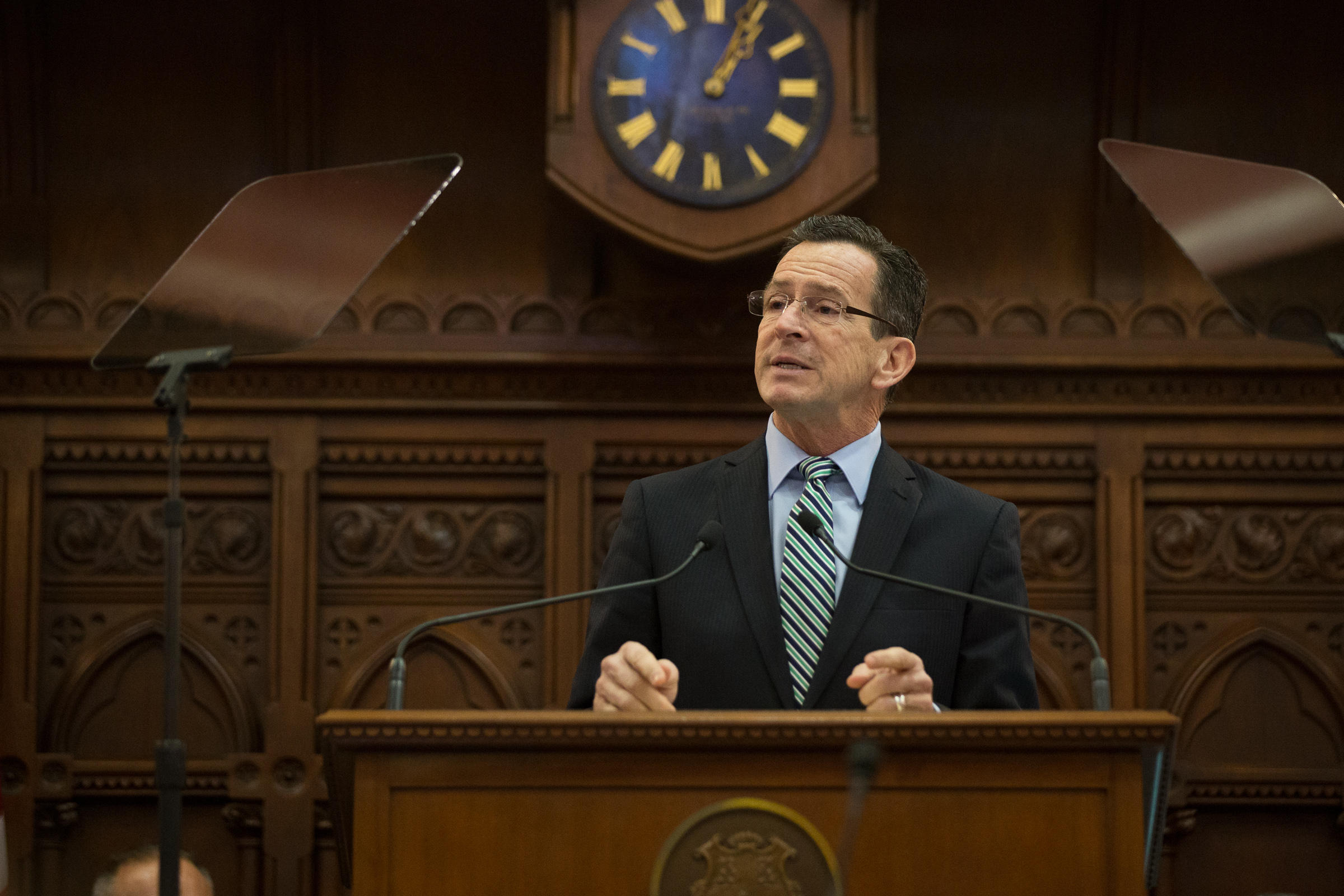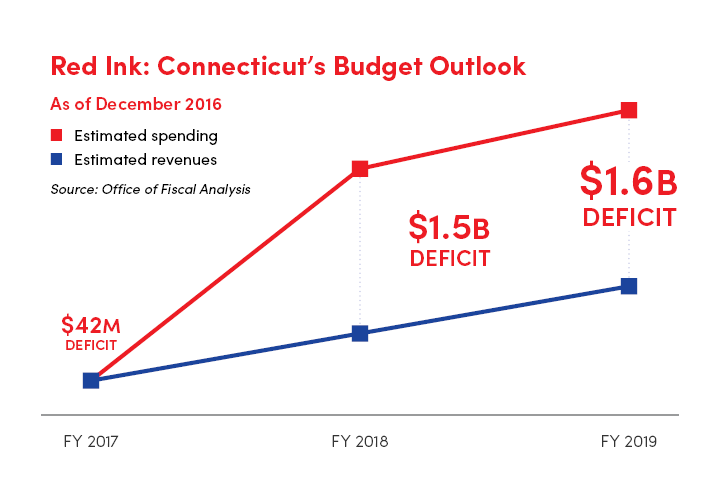Governor: State Must Provide Predictability

Predictability and stability in spending and taxes: It’s what Connecticut’s business community has wanted for years from its state government because, after all, a predictable economic landscape encourages investment and job growth.
So when Governor Dannel P. Malloy, in his Jan. 4 State of the State address, spoke of a leaner state government that will be predictable—for businesses, families, and individuals—it was welcome news.

“Predictability allows businesses to expand, to make new hires, to put down new roots,” the Governor said in his address.
“When we give people reason to believe that their job is here to stay, we’re giving them the confidence to purchase a home, to buy a new family car, or to start a college fund.
“Predictability allows businesses to expand, to make new hires, to put down new roots right here in Connecticut.
“This is what companies and their workers are looking for. They deserve it, and it’s on us to provide it.”
CBIA President and CEO Joe Brennan said Malloy’s address “hit all the right notes and set a good template for the legislature going forward as they put together a budget.”
“This was a serious but necessary message from Governor Malloy that reflects the priorities that we hear from our members,” Brennan said.
“Predictability is key to economic success for both employers and individuals.
“Employers must have confidence in the state’s fiscal condition to invest and grow in Connecticut, and predictability and stability are the first steps to creating that confidence.
“Our members are heartened to hear that this is a top concern for the governor.”
Framing the Budget
But Brennan said that optimism will fade quickly if Connecticut lawmakers raise taxes this year after giving taxpayers two of the biggest tax increases in state history over the last six years.
“Closing budget deficits without raising taxes is critical to Connecticut’s future,” Brennan said. “Additional increases will only hurt us more by driving wealth, talent, and investment out of Connecticut.
“Tax increases would be very detrimental to what the governor is trying to accomplish.”

Connecticut faces billion dollar-plus budget deficits in the next two fiscal years.
“To start, we need to continue making state government leaner and more cost-effective,” he said.
“The responsible way to do that is by setting priorities, and allocating our resources where they are needed most. Because the truth is, we simply can’t afford to continue doing everything we’ve done in the past.”
The governor noted that $850 million was cut from the current state budget last year and he will direct agency heads to find additional savings to “continue to make government more efficient, more sustainable, and more reflective of our economic reality.”
“Cuts in specific areas, or outright eliminations, should not be taken to mean that certain work is not valued,” he said.
“It simply means that we can no longer afford to do it all, and that our spending must be focused on the very core, essential services for our residents.”
Union Negotiations
Malloy’s budget proposal will also focus on controlling Connecticut’s growing obligations to state employee retirement systems.
The governor called on lawmakers to support his administration’s recent agreement with state employee unions holding down annual pension payments that were set to climb to $4-$6 billion in the next 16 years.
However, Malloy said his administration will continue negotiating with unions to seek further reforms, including higher employee contributions for pensions and retiree health benefits.
A responsible and balanced solution to our budget problem is one that includes state employee concessions.
"A responsible and balanced solution to our budget problem is one that includes state employee concessions."
Brennan said state employee wages and benefits must be addressed, including overhauling a retirement system that allows workers to factor overtime in pension calculations.
“It’s just a fiscal reality of the times we live in that we have to make state employee wages and benefits more affordable for taxpayers,” Brennan said.
Brennan also stressed that Connecticut must honor past obligations it made to retirees.
Municipal Aid
Malloy indicated that the state’s precarious finances could result in changes in municipal aid to cities and towns, with less-affluent municipalities likely to get more state aid than more-affluent communities.
He said education will always be a top priority but that the formula by which the state distributes education aid to municipalities must change, as a state judge recently ruled.
“The budget that I will present to you next month will outline a more equitable system for providing town aid," he said. "It will be based on the local property tax burden, student need, and current enrollment."
Brennan said that while the state must consider everything as it looks for ways to improve the economy, it’s important to have a strategy to address the problems in the state's largest cities.
“We must make sure we have strong, vibrant, sustainable cities,” he said. “Our members understand the role they play in the state's economic future."
Malloy called for Connecticut state lawmakers to work during session and on the budget “in a spirit of authentic, bipartisan collaboration.”
Brennan said Connecticut voters would have it no other way.
“They don’t care for partisan bickering. They care about results,” he said.
“We credit the governor and his administration for the positive steps they have already taken including efforts to reduce government spending and previous agreements with labor unions.
“If we continue down the path that the governor has set to make Connecticut’s government smaller and more affordable, we can make progress on the state’s economy.
"We look forward to working with the governor and both Democrats and Republicans to accomplish this goal.”
RELATED
EXPLORE BY CATEGORY
Stay Connected with CBIA News Digests
The latest news and information delivered directly to your inbox.


